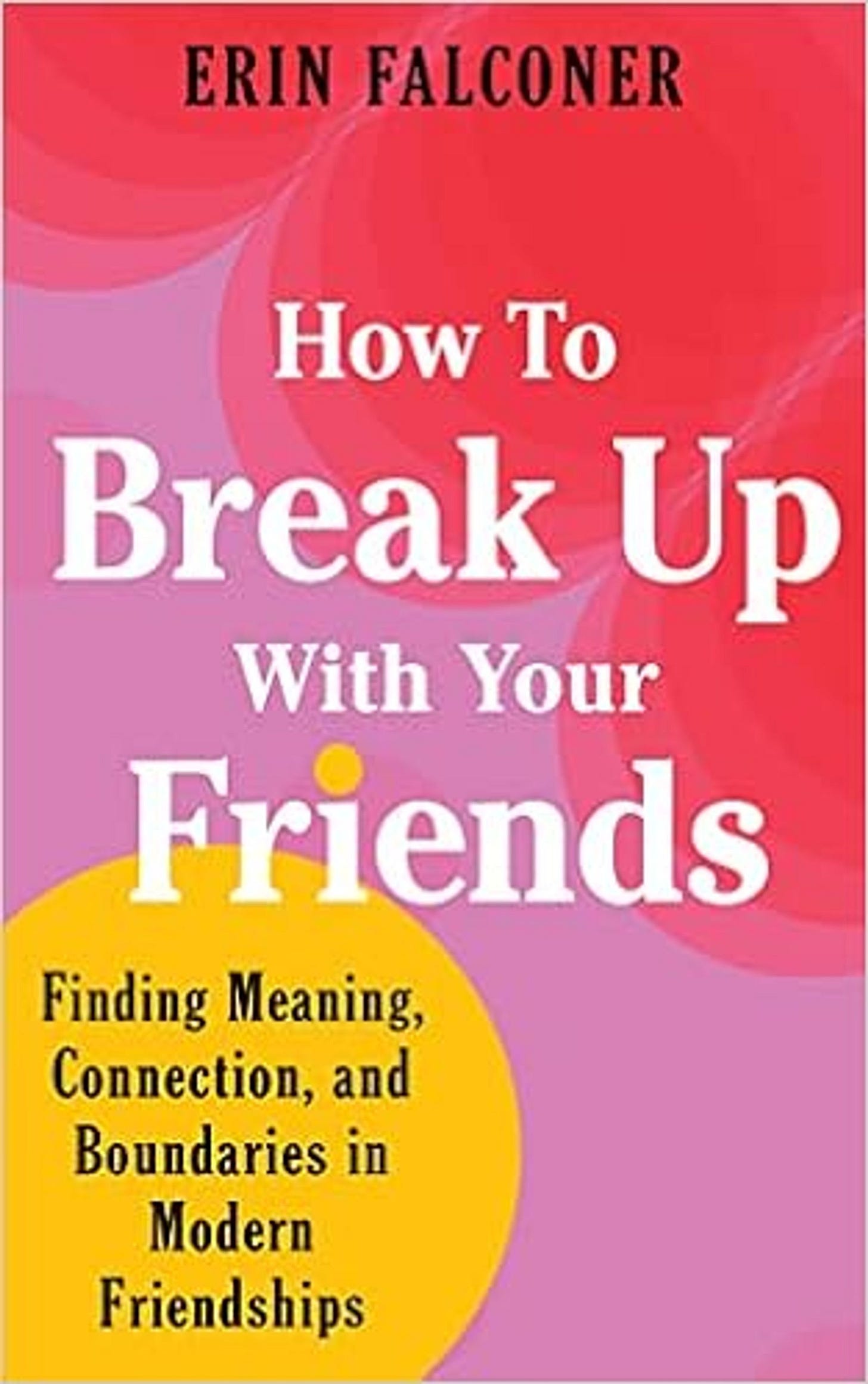How to Break Up with Your Friend
🙅🏻♀️✋🚫
Start Here
You might have a friendship that you don’t wish to continue. It happens! People drift apart; interests change because people change.
How do you handle that awkward situation when they keep calling and texting?
What do you do when you want to break up with your friend?
There are different schools of thought on this, but I believe that letting the friendship die of natural causes is often the best course of action.
In Defense of Ghosting
It’s natural to want closure when a relationship feels off, but ending a friendship through confrontation can often add unnecessary pain. While confrontation can sometimes clear the air in certain situations, it's rarely constructive when the intention is simply to end the friendship.
While some argue that a confrontation is called for (and sometimes it is), there isn’t much to be gained in confronting someone to tell them you don’t want to be friends anymore. It seems needlessly cruel to do just to make yourself feel better.
How could it feel anything but hurtful to be told, point by point, why someone has decided they don't want you in their life anymore?
Rather than laying out all the reasons for ending the friendship, which could create lasting hurt, it might be more compassionate to simply let the relationship fade. Sometimes, it's less painful for someone to think you just drifted apart than to have you confirm to their face that you no longer want them in your life—and that you have reasons, too.
Silence, “ghosting,” is, in fact, a communication. If someone has ghosted you, take the message (don’t take it personally). Take the message that you are not essential to that person’s life and move on. There are 8 billion people on this planet. You will find other friends.
This is not a popular opinion, so in light of that, I’m providing a few talking points to help you in case you decide that a conversation is needed.
Conversation Blueprint
Acknowledge the times shared and express that the friendship no longer feels healthy or fulfilling.
Focus on personal feelings and explain that stepping back is necessary for well-being.
Recognize and appreciate the positive memories and experiences.
Emphasize that no one is at fault, and it’s about personal growth and change.
Express gratitude for the friendship and acknowledge that it’s time to move on separately.
Set boundaries by respectfully stepping back from the friendship.
End the conversation gracefully with well wishes and respect.
Talking Points
Hi <Name>, I have to say something and it may be difficult to hear. While I have been so grateful for our friendship, I think it’s run its course.
Our interests and goals are so different that I think we have a difficult time connecting.
I have nothing but the warmest affection/feelings for you, but I just know with my limited time these days that I’m not able to be the friend you deserve.
I've valued our friendship, but I've been feeling like it's no longer as healthy or fulfilling as it used to be.
I’ve noticed that we’ve grown in different directions, and it’s affecting how I feel about our connection.
I’ve been reflecting on how I’ve been feeling in our friendship, and I realize that it’s time for me to step back.
This decision is about where I am in my life right now, and I need to prioritize my own well-being.
I’ll always appreciate the memories we’ve made, and I’m grateful for what this friendship brought into my life.
You’ve been an important part of my life, and I don’t take that for granted.
This isn’t about pointing fingers or placing blame; it’s just about where I need to be moving forward.
It’s not that anyone is at fault; we’ve just evolved in different ways.
I want to express my gratitude for the good moments we’ve shared. I believe that it’s best for both of us to find the right connections moving forward.
I think it’s important for us to have some space, and I’d like to respectfully step back from our friendship.
I wish you all the best moving forward, and I hope we can part with respect and understanding.
Further Reading
I recommend reading Dr. Erin Falconer’s book on this topic. I don’t agree with everything she suggests, but I think she covers many essential points for anyone who finds themselves in this situation:
**How to Break Up with Your Friends: Finding Meaning, Connection, and Boundaries in Modern Friendships by Erin Falconer





